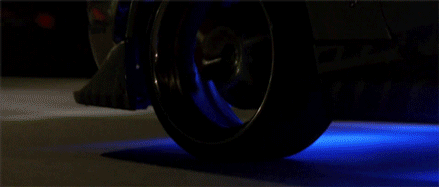From January 2014 to March 2017 a steady increase in road rage incidents, in Michigan and around the country, has been noticed by many road safety organizations. These incidents have been attributed to aggressive drivers escalating their behaviors to involve violence in their upset over various road annoyances.
The Difference Between Road Rage and Aggressive Driving
The National Highway Traffic Safety Administration (NHTSA) states that road rage is when a driver “commits moving traffic offenses so as to endanger other persons or property; an assault with a motor vehicle or other dangerous weapon by the operator or passenger of one motor vehicle on the operator or passenger of another motor vehicle.” Aggressive driving on the other hand, is a traffic offense involving rude gestures, screaming, tailgating, cutting off traffic, and other violent actions.
So, while traffic congestion bothers every driver on the road, some people take offense to this and unnecessarily tailgate the car in front of them, honk, or curse, as if it will change the traffic pattern. These behaviors are examples of aggressive driving. Sometimes however, they take their actions to the next level by trying to injure others on the road. This response is an act of road rage.
The Psychology Behind Road Rage Statistics
Aggressive drivers are more likely to become hostile during traffic jams, when they are running late, and during road closures or construction. Most of the time aggressive driving occurs due to some drivers having stress in other areas of their life and they take it out of the traffic. In fact, 66% of traffic fatalities are attributed to aggressive driving. Rather than just yelling or cursing however, some aggressive drivers venture into road rage territory by assaulting innocent people on the road way with their vehicle or by introducing another type of weapon into their rage.
Source: GIPHY, Fox's Lethal Weapon
In Detroit alone, The Trace reports there have been 14 cases of gun violence due to road rage. Add that with the American Safety Council (ASC) statistical evidence highlighting male drivers under the age of 19 being more likely to engage in road rage and the NHTSA's survey that found 37% of road rage incidents involve a firearm, Detroit finds itself in an alarming situation. Even more troublesome is the fact that in over a seven year period, 12,000 injuries and 218 lives were lost due to road rage. 2% of drivers have even admitted to trying to run an aggressor off the road!
Some psychiatrists attribute road rage incidents involving extreme violence to Intermittent Explosive Disorder (IED). The disorder is believed to come into play in our society due to the common practice of wearing a “false face” like in internet settings where anonymity serves as a barrier. In a similar way, a car acts as a safety mechanism or barrier for those dealing with road rage and leads them to believe that there are no repercussions for their actions.
How To Decrease Road Rage
Source: GIPHY, The Fast and the Furious
The NHTSA along with the ASC says that it’s best for drivers to avoid participating in behaviors that encourage aggressive drivers to turn their attention onto them. Actions such as driving while distracted, turning on high beam lights, not checking blind spots, or not signaling turns and lane changes are all behaviors that incite rage. The NHTSA and ASC are warning drivers to take notice of their behavior in order to keep conflict down while on the road, no matter who is at fault. The ASC also recommends drivers to avoid making eye contact and to refrain from reacting and/or retaliating to an aggressive driver's actions, in order to neutralize a hostile situation.
Following the rules of the road should keep drivers safe and should keep other drivers from being annoyed by your road behavior. However, there are drivers out there who are easily annoyed when other motorists who are following the speed limit aren't going fast enough for them, or drivers who honk if the car in front of them doesn't move quickly enough after a light change. There may never be a way to avoid such situations. Hopefully however, following these tips may be enough to help some motorists avoid getting into a road rage incident.
Aggressive driving and road rage are serious problems in larger cities like Detroit where commuters can be stuck in rush hour traffic for hours on end. With so much congestion on the road, motorists can easily lose their calm and begin to drive aggressively, triggering negative reactions and responses from other drivers, and potentially causing car accidents. If you or somebody you know have been a victim of road rage, call The Michigan Law Firm, PLLC. Our firm can help those injured in an aggressive driving car crash get the help they deserve. Call us today, at 844.4MI.FIRM for a free consultation.



